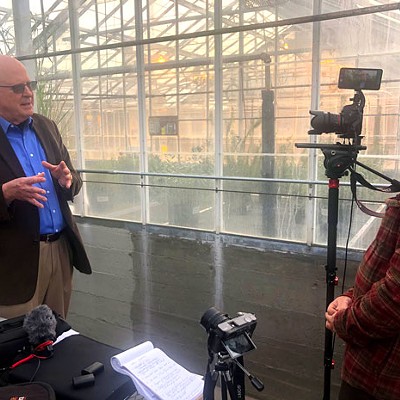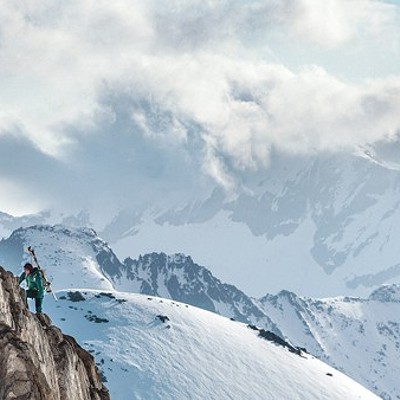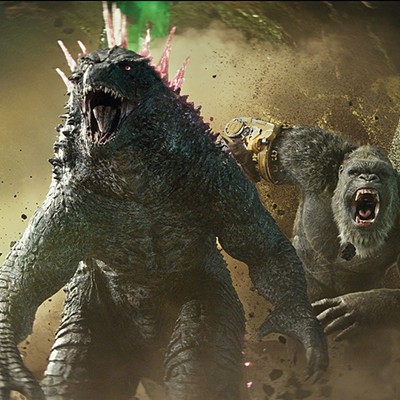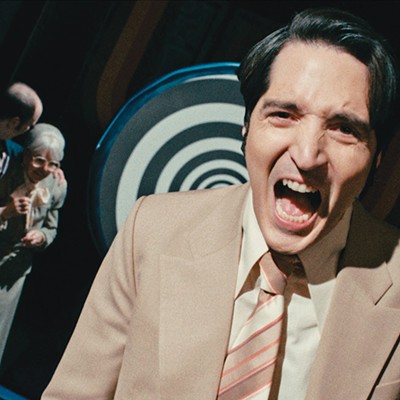The entry in Wikipedia for the sport of "log rolling" or, its more popular name, "roleo" is barely more than 10 lines long. It provides a few rules and the most drab information about a sport once popular in mill towns throughout the Northwest and upper Midwest. But largely, the entry—and, for that matter, most any information online about the sport—forgets to tell about how exciting, challenging and difficult log rolling is, and how it jumped from a 19th century goof-about by loggers into a national sensation in the 1920s, with dozens of log rolling summer camps springing up around the country through the remainder of the century.
It is a tough sport: Two competitors stand on opposite ends of a (slippery) floating log; they face each other, and moving their feet try to spin the log—and spin their opponent off. It requires the balance beam dexterity of an Olympic gymnastic, the fleet-foot speed of a 100 meter sprinter and the burly toughness of a hockey player to take the hits when you fall. (I know. As a kid, I spent two weeks at a log rolling camp in Wisconsin. That was enough for me, and from that forward, took on non-contact sports like rowing and skiing.)
But as exciting as the sport is, as logging culture fades into a footnote of American history, and as former participants settle into retirement homes, the heyday of the sport is vanishing from memory.
However, local journalist and former TV executive Dave Jones has produced a documentary film that recalls that history. The film hinges on four women from the Lewiston, Idaho, ,region who were some of the best log rollers in the world.
A short preview of the Queens of the Roleo played at the Central Oregon Film Festival and won an award for best documentary. Since then, Jones has completed the production on the full feature-length documentary and, in October, premiered the movie in Lewiston (complete with a log rolling tank on site!). Jones is now raising funds through Kickstarter to tour the film even wider—including plans for a screening at the Tower Theater here in Bend.
Coincidentally, Jones started his career in Lewiston as a newscaster. Decades later, with a broad face, a lion's mane of hair, chiseled features and perfectly straight teeth, Jones still looks every bit the part of anchorman. In 1982, he moved to Bend, and through the '80s, was the news director for KTVZ. Yet, in spite of his decades-long career in TV news, this is the first documentary he has filmed and produced himself.
"The news guy in me was: four petite women, 11 world championships in 14 years," explains Jones. "This is a story that needs to be told."
Especially because the "characters" in the story are aging—the women who won the championships are now in their 70s and the coach is 87-years-old—Jones knew that he needed to jump into action immediately. "I said, 'Let's go.'"
He tracked down all four women, and the coach, a self-described "pond monkey," who all are still alive. Jones simply cold-called the coach, and two weeks later traveled to meet up. When he arrived, the kitchen table was filled with trophies and boxes of news clips.
"Like all documentaries, it is about the people," says Jones. "It is also about a timber culture that doesn't exist anymore." He talks excitedly about log drives when the loggers would ride fallen logs down the rushing rivers. "It is a moment in history that is gone, and I want to share that."
Jones hopes to raise a modest amount to complete and tour the film. His Kickstarter campaign lasts through noon, Thursday, December 4.























